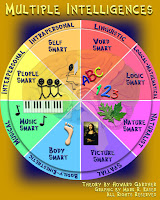Merry Christmas and Happy New Year,
Finally, we are at the end of our online thread. This great experience is impressively sealed in my memory. This course convinces me that the Internet accessing definitely motivates our students to be autonomous learners. However, this should be under teacher guides. From the starting point to the end of this course, I have learned many things useful for my educational career and I’m ready to transfer them to students and teachers.
I consider all of what I have learned from this course meaningful source for teachers of English. Therefore, if teachers applied the source to their teaching, I believe, students would pay more attention to language learning.
By the way, can I leave some suggestion for newcomers? Firstly, you have to be determined or set your goal and try to be there. You might encounter difficult issues which you have to spend more time on reading or difficult technical problems. Ask for helps from your instructor or classmates. Don’t be hesitated because they will obstruct you to move on other steps. Secondly, you have to manage your time. Don’t forget that you not only have the online course but also regular work. We have to balance both of the things so you need to prioritize your tasks. Definitely, you have to increase your working time at home and take less sleeping time. Lastly, tell people around you what you are doing. This is for better understanding between you and them. Sometimes, you need private corner to study and cannot socialize with your colleague.

Without Oregon university support, I would have been a teacher with traditional teaching and would not have realized how technology encourages language teaching. I would like to thank Robert, our supervisor for your understanding various distant learners and hard work; Jeff Magoto and Deborah, our guest moderators, for sharing ideas and encouraging comments on our posts; and my classmates for great sharing and accompanying me to stand at this point. If possible, I would like all of teachers of English in my country experience such valuable experience.
All of my best to you all,
Moo






